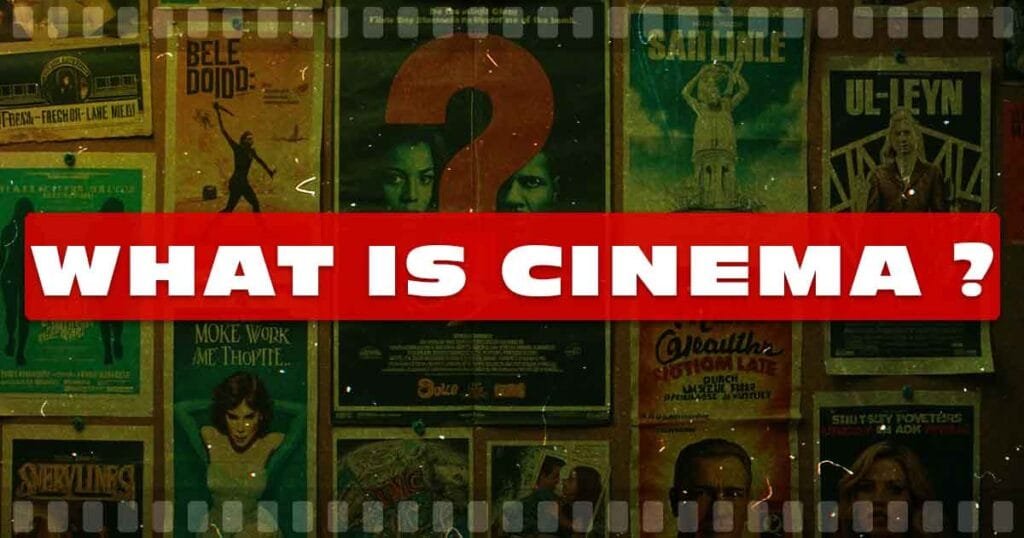Cinema, the art of the moving image, is much more than entertainment. It’s a universal language, a time machine, and an emotional powerhouse. For over a century, cinema has been the gateway to stories that inspire, educate, and transport us to worlds beyond our own. But what truly defines cinema? Why does it captivate us like no other art form? Let’s embark on a journey to uncover the essence of cinema, its history, impact, and future.

The Essence of Cinema: More Than Just Movies
At its core, cinema is storytelling. It’s the ability to capture life, imagination, and emotion on film, weaving them into narratives that resonate deeply with audiences. From the earliest silent films to today’s CGI spectacles, cinema has always been about one thing: connection.
Take, for example, Steven Spielberg’s E.T.—a story that, on the surface, is about an alien stranded on Earth. Dig deeper, and it’s about friendship, loneliness, and finding a place to belong. Similarly, The Shawshank Redemption is more than a prison drama; it’s a tale of hope and resilience that reminds us of the strength of the human spirit. These films aren’t just stories; they are mirrors reflecting our deepest truths and aspirations.
A Short Journey Through the History of Cinema
The magic of cinema began in the late 19th century when inventors like the Lumière brothers and Thomas Edison turned the dream of moving pictures into reality. Their early films, such as the Lumière brothers’ Arrival of a Train at La Ciotat Station, amazed audiences who were witnessing motion captured for the first time. Legend has it that viewers, startled by the sight of a train seemingly barreling toward them, leapt out of their seats.
As the medium evolved, so did its power. Silent films gave way to the “talkies” with The Jazz Singer in 1927, revolutionizing how stories were told. The Golden Age of Hollywood followed, bringing timeless classics like Casablanca, Gone with the Wind, and Citizen Kane. Directors like Alfred Hitchcock and Orson Welles pushed the boundaries of storytelling, exploring new techniques in cinematography, editing, and narrative structure.
One iconic moment that stands out is the transition from sepia-toned Kansas to the vibrant Technicolor of Oz in The Wizard of Oz. This wasn’t just a technical achievement; it symbolized Dorothy’s journey into a world of wonder and possibility, redefining the emotional power of color in film.
What Makes Cinema Unique? The Ultimate Art Form
Cinema is a synthesis of all art forms. It borrows from literature for its stories, theater for its performances, photography for its visuals, music for its scores, and painting for its framing. What sets cinema apart is how it combines these elements into a seamless, immersive experience.
Consider Alfred Hitchcock’s Psycho. The infamous shower scene is a masterclass in cinematic storytelling. The rapid cuts create a sense of chaos and urgency, Bernard Herrmann’s screeching violins heighten the tension, and Janet Leigh’s terrified expressions pull us into her fear. Each element—editing, sound, and acting—works in harmony to evoke a visceral reaction from the audience.
Cinema’s collaborative nature is another aspect that makes it unique. Behind every iconic scene are countless individuals—directors, writers, cinematographers, sound designers—working together to bring a vision to life. This synergy transforms ordinary stories into extraordinary art.
Genres of Cinema
Cinema is characterized by a diverse range of genres that cater to various audience preferences. Understanding these genres helps us appreciate the different storytelling techniques employed by filmmakers. Here are some primary genres:
- Action: Films that emphasize physical feats, including fights and chases (e.g., Die Hard).
- Drama: Focused on character development and emotional narratives (e.g., The Shawshank Redemption).
- Comedy: Designed to provoke laughter through humor (e.g., Superbad).
- Horror: Aims to elicit fear or suspense (e.g., The Exorcist).
- Science Fiction: Explores futuristic concepts or technologies (e.g., Blade Runner).
- Documentary: Non-fiction films that document reality for educational or artistic purposes (e.g., March of the Penguins).
These genres often overlap or inspire subgenres, leading to hybrid films that defy traditional categorization.
The Impact of Cinema on Culture and Society
Cinema doesn’t just reflect culture; it shapes it. From sparking social movements to redefining representation, movies have the power to inspire change and ignite conversations.
Steven Spielberg’s Schindler’s List is a poignant example of cinema as a tool for remembrance and education. Its raw depiction of the Holocaust ensures that history is neither forgotten nor repeated. Similarly, Black Panther broke new ground in 2018, celebrating African culture and providing representation for a generation of viewers who had never seen a superhero who looked like them.
Cinema also captures the spirit of the times. Movies like The Breakfast Club encapsulate the struggles and triumphs of adolescence in the 1980s, while films like Parasite critique contemporary issues of class disparity. By telling stories that resonate with the zeitgeist, cinema becomes a time capsule, preserving the emotions and values of each era.
The Future of Cinema: A Changing Landscape
With the rise of streaming platforms, virtual reality, and AI, the way we consume cinema is changing. Streaming giants like Netflix and Disney+ have democratized access to films, bringing diverse stories to audiences worldwide. Movies like Roma and Soul, released directly on these platforms, prove that cinematic quality isn’t confined to theaters.
Virtual reality and interactive storytelling are also pushing the boundaries of what cinema can be. Imagine stepping into your favorite film and experiencing it from within—a future that feels increasingly possible with advancements in VR technology.
While the medium evolves, one thing remains constant: the power of storytelling. As long as there are stories to tell, cinema will continue to thrive, adapting to new technologies while preserving its timeless magic.
Conclusion: Why Cinema Matters
Cinema isn’t just a medium; it’s a shared experience. Whether in a packed theater or on a laptop screen, watching a movie is about connecting—with the story, the characters, and even fellow viewers. It’s about escaping reality while gaining a deeper understanding of it. As we continue to navigate an ever-evolving landscape shaped by technological advancements and shifting cultural narratives, cinema remains a vital force in our lives—one that will undoubtedly continue to inspire generations to come.
The next time you watch a movie, take a moment to appreciate the artistry behind it—the cinematography, the performances, the score. Remember that you’re not just watching a film; you’re experiencing a piece of history, culture, and humanity.
So, what does cinema mean to you? Share your favourite cinematic moments in the comments below, and let’s celebrate the magic of the silver screen together.
Also Read : What is Filmmaking | Beginners Guide
Also Read : What is Cinematography | A Beginners Guide
Also Read : What is Art? Understand Deeply
Frequently Asked Questions;
What is the definition of cinema?
Answer: Cinema refers to the art and technology of making motion pictures, often designed to tell stories, evoke emotions, and entertain audiences. It encompasses both the filmmaking process and the experience of watching movies on a screen.
What makes cinema unique compared to other art forms?
Answer: Cinema is unique because it combines multiple art forms—literature (storytelling), photography (visuals), music (scores), and theater (performances)—into one medium. It’s also immersive, using visuals and sound to create an emotional connection with audiences.
What is the difference between film and cinema?
Answer: The term film typically refers to individual motion pictures, while cinema refers to the medium as a whole, including the industry, art form, and experience of watching movies.
What are some of the greatest films in cinema history?
Answer: Some widely regarded classics include:
Citizen Kane (1941)
The Godfather (1972)
Casablanca (1942)
Schindler’s List (1993)
Pulp Fiction (1994)
Parasite (2019)

